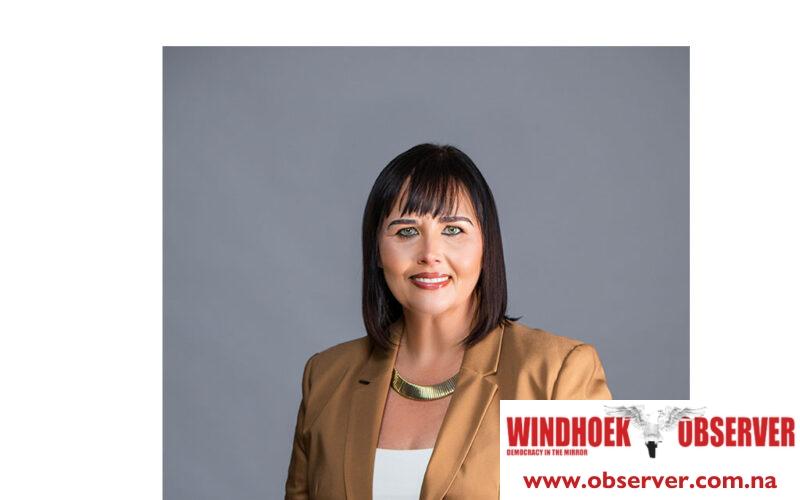Mignon du Preez
Life in Namibia today is anything but uncomplicated. Families across the board are finding the strain of ever-increasing prices, a lack of jobs, and static incomes that cannot keep up with the cost of living. It’s the price of bread, school charges, petrol, or rent; pressure is building across the country. These are not abstractions; these are flesh-and-blood issues that shape how people live, plan, and dream.
Universal concerns like inflation, economic stagnation, and unemployment characterise our own backyard existence. But even during these circumstances, there is one unchanging fact: insurance and saving are not luxuries; they are essentials. They serve as a cushion when things in life become volatile, and they allow us to plan for tomorrow, even when tomorrow is uncertain.
The 2024 Old Mutual Financial Services Monitor (OMFSM) offers a clear snapshot of how Namibians are feeling about their financial situation. Only 24% of working individuals are hopeful about the country’s economic outlook over the next year. That’s a sobering figure. But what’s truly remarkable is that 58% still believe their personal finances will improve. That speaks a lot about the will and strength of Namibians to keep persevering, even when the odds seem to be against them.
But the difficulties are very real and extensive. The study indicates that 42% of people are currently financially struggling, and 75% indicate their income has stayed the same or gotten worse over the past three years. Such data point to the kinds of sacrifices families are having to make, cutting back on expenses, postponing major purchases, and finding new ways to make ends meet.
To survive, ever-increasing numbers are turning to credit and personal loans. These tools of financing can be good if applied responsibly, especially in fulfilling short-term needs. But they are financing long-term goals too, like education planning, medical expenses, or keeping insurance policies active. Insurance is needed more than ever in such times. It’s not only about protecting assets; it’s about protecting people, families, and futures.
Insurance is for the unexpected times: getting sick, getting into an accident, losing employment, or passing away. It provides a safeguard that can make a difference in difficult times. But when money runs low, insurance is one of the first things people consider cutting back on. It’s understandable; everybody wants to save money. But cancelling the cover could leave you at greater risk and generally costs more to reinstate in the future.
Instead of cancelling, there are alternative ways of coping with your insurance. You can adjust your benefits, enjoy a premium holiday, or opt for cheaper alternative cover that still gives valuable protection. These flexible options can ease cost pressure without sacrificing peace of mind.
The rising cost of living is forcing us to think twice about managing our finances. Yet it is also an opportunity to learn new habits. Credit, for example, is not a short-term fix—it can be a stepping stone to achieving more ambitious objectives, responsibly done. It can help you remain on track with your savings, maintain your insurance, and invest in the long-term future of your family. And you don’t have to do it alone.
Old Mutual Namibia wishes to accompany you on this journey. Our On The Money education programme is completely free and has already impacted more than 8 000 Namibians since 2024 alone. It’s all about equipping individuals with hands-on tools to manage their money more intelligently: budgeting, saving, or making plans for the future. Because when you’re aware of your money, you’re better equipped to make decisions that benefit both your now and your then.
We also want to acknowledge the legacy of the OM SEED programme, which was completed recently. During its run, it supported small and medium-sized enterprises in all 14 regions of Namibia, making it possible for entrepreneurs to establish sustainable businesses and create job opportunities. Even though the programme has ended, its impact will be seen in the many businesses and communities it enabled. It’s a tribute to what can be accomplished when we invest in homegrown talent and empower individuals to seize control of their own economic futures.
The OMFSM report is not statistics; it’s human beings. It is the daily life of Namibians. It tells us where the assistance must be focused but also where the hope and resilience are already starting to emerge. Behind all the statistics, there is a life: a parent struggling to put food on the table for their children, a young graduate seeking opportunity, a pensioner fighting to stretch their pension.”
So yes, things are tough. But that doesn’t prevent us from planning, from guarding, or from hoping. Insurance and savings aren’t money products; they’re stability tools, decency tools, and future-creating tools. And with the proper support, Namibians can move away from simply surviving to actually thriving.
Because even in uncertainty, there’s always hope. And together, side by side, we can build a future not just safe, but full of promise.
*Mignon du Preez is the group marketing, public affairs and sustainability executive at Old Mutual Namibia.
Caption
Mignon du Preez
- Photo: Old Mutual




